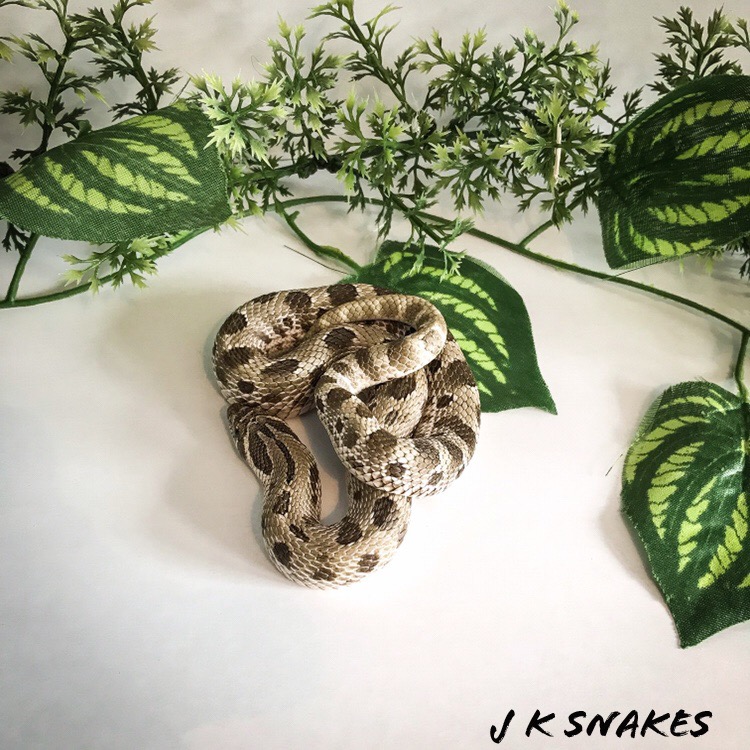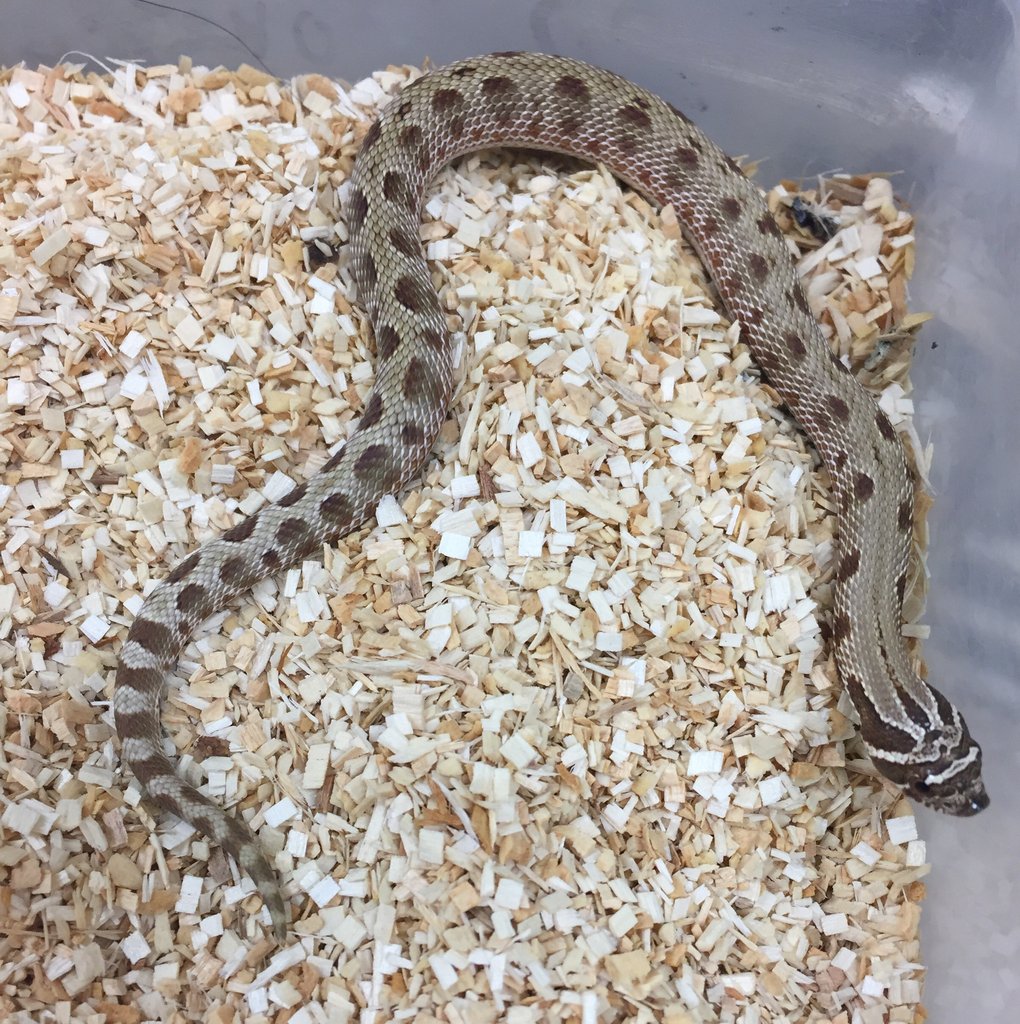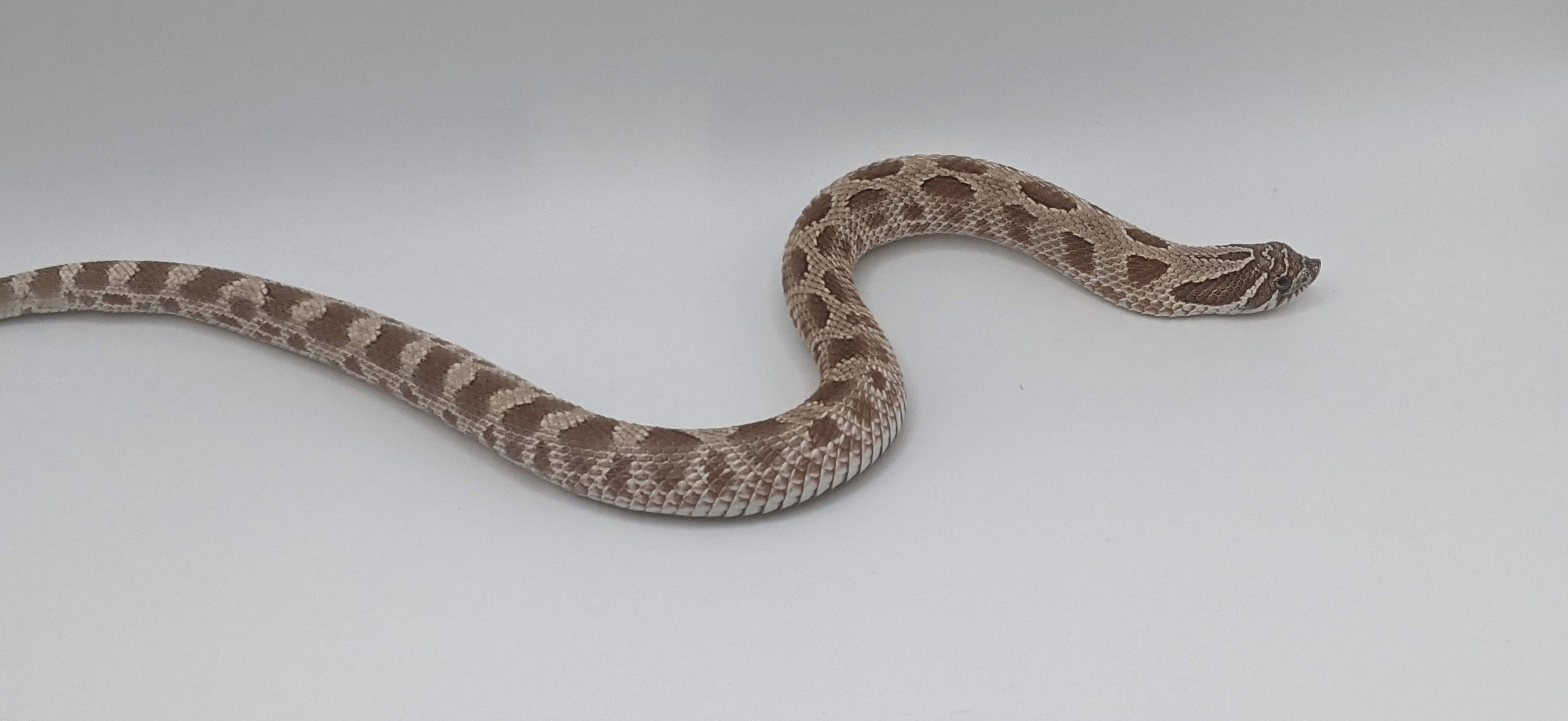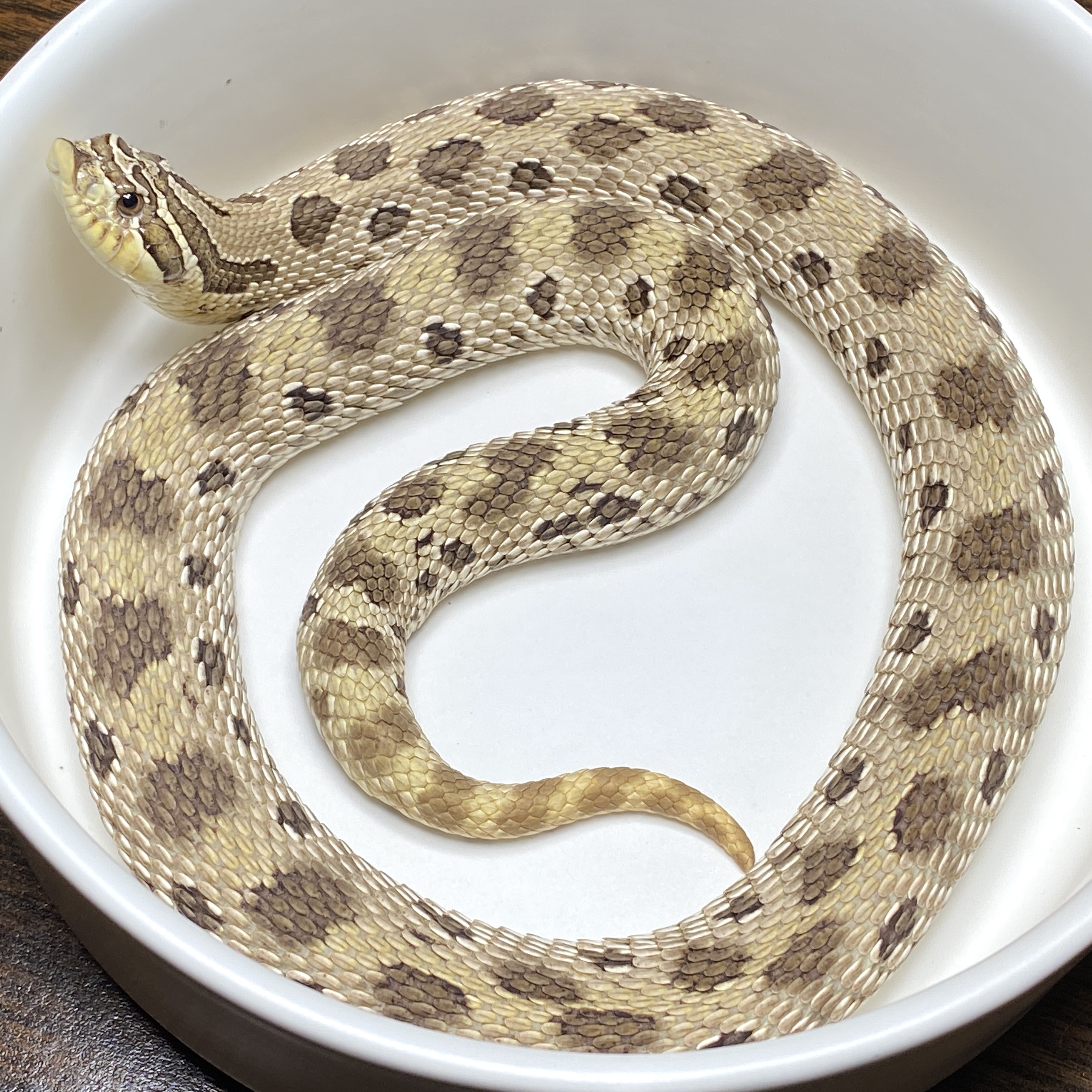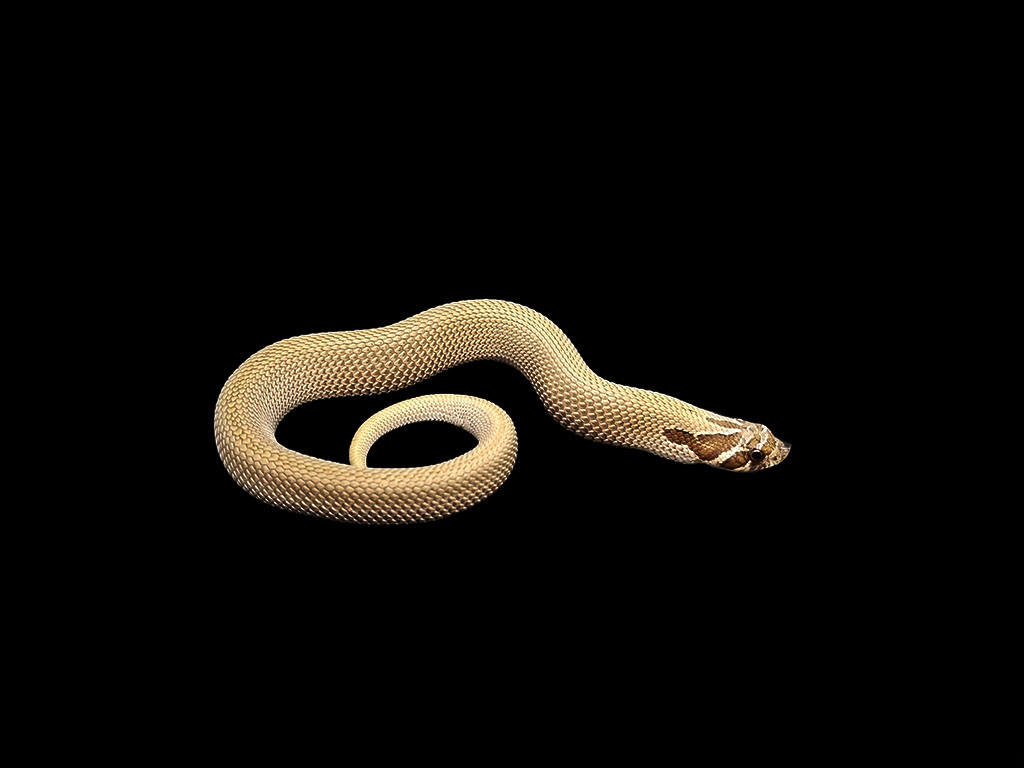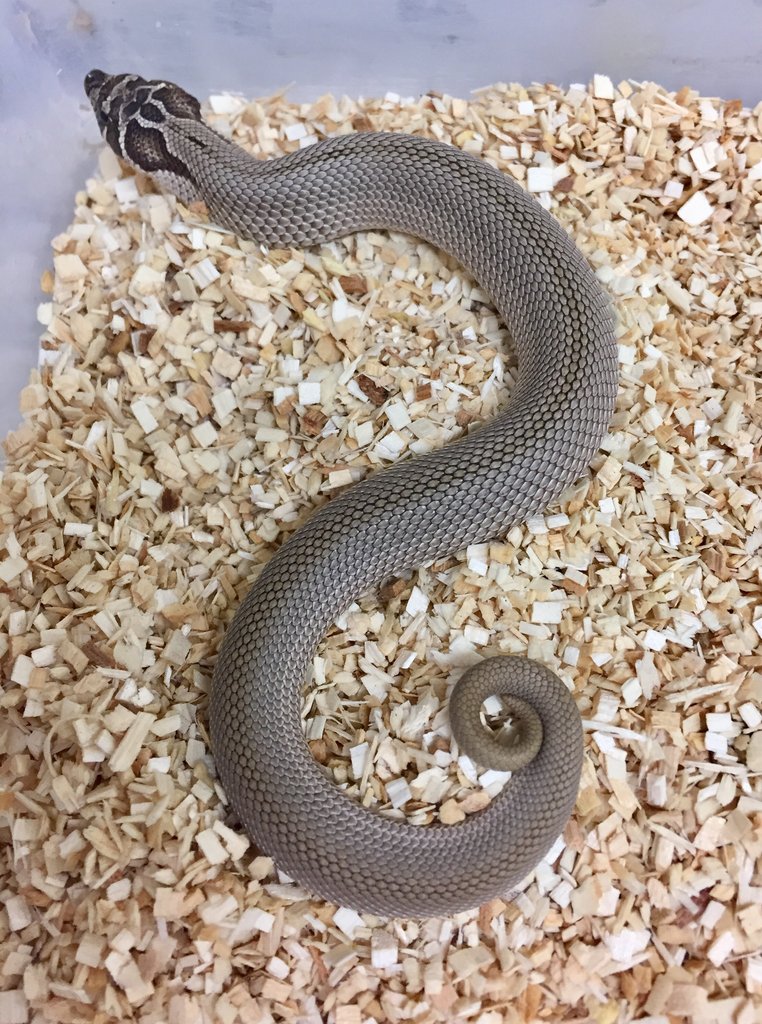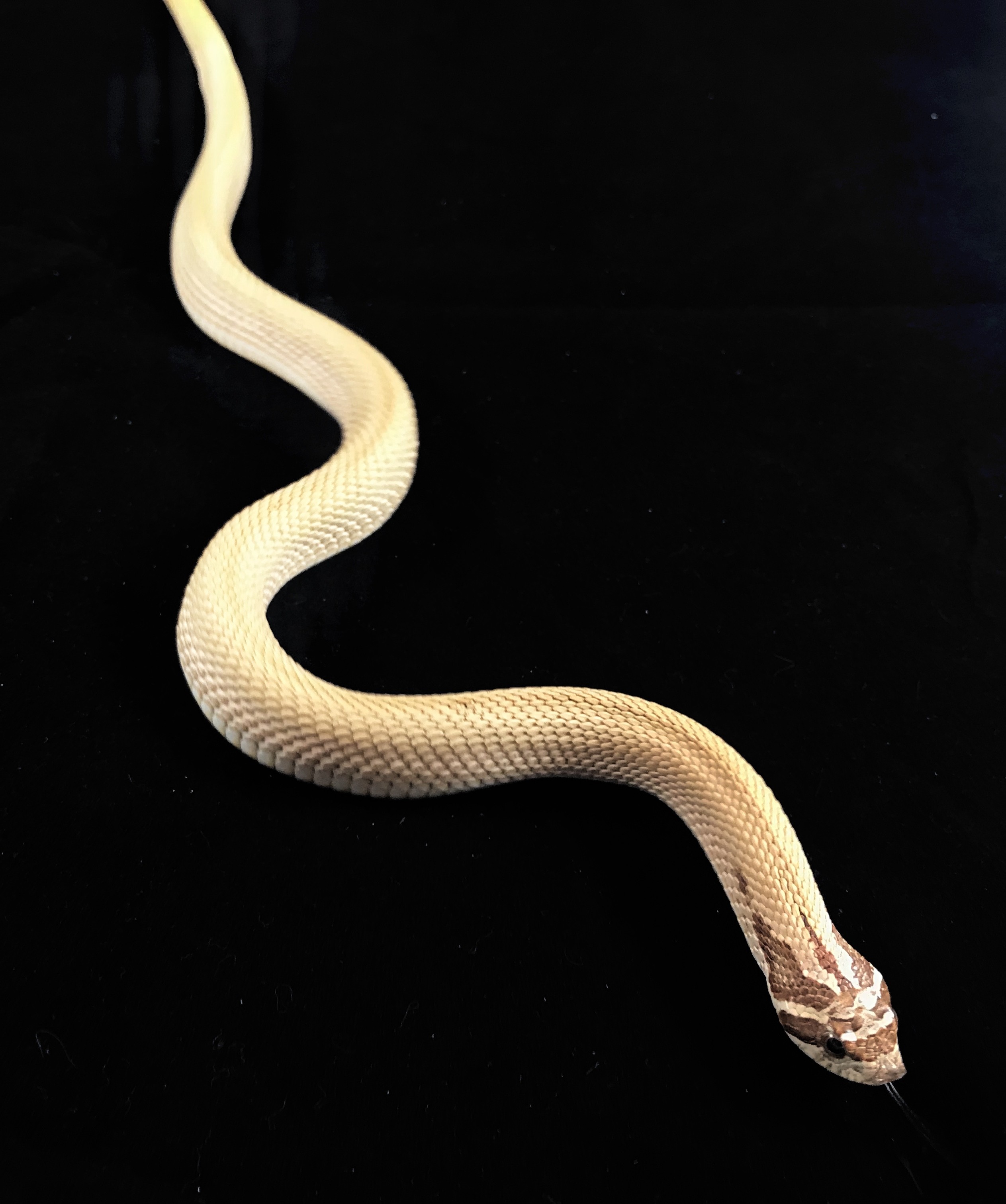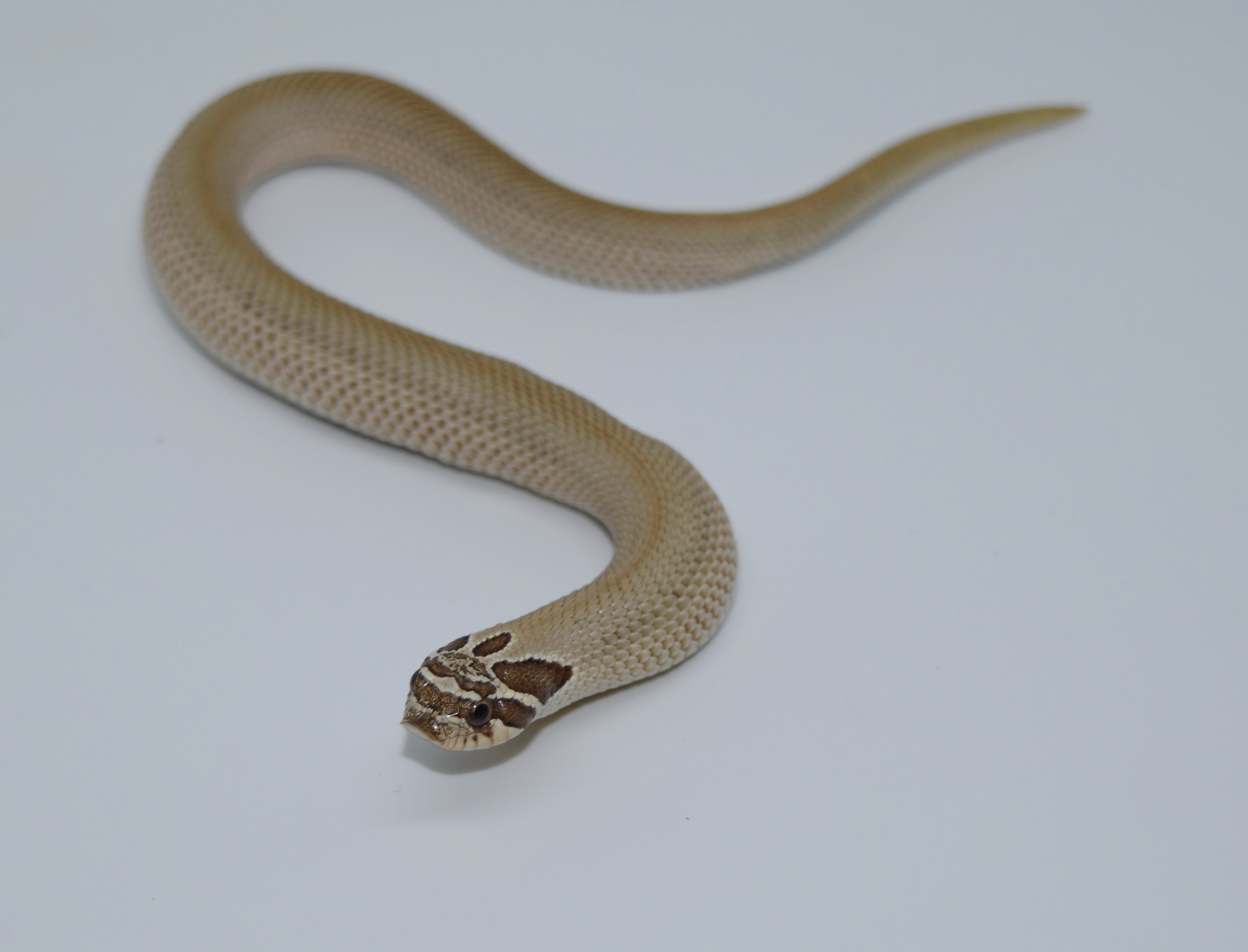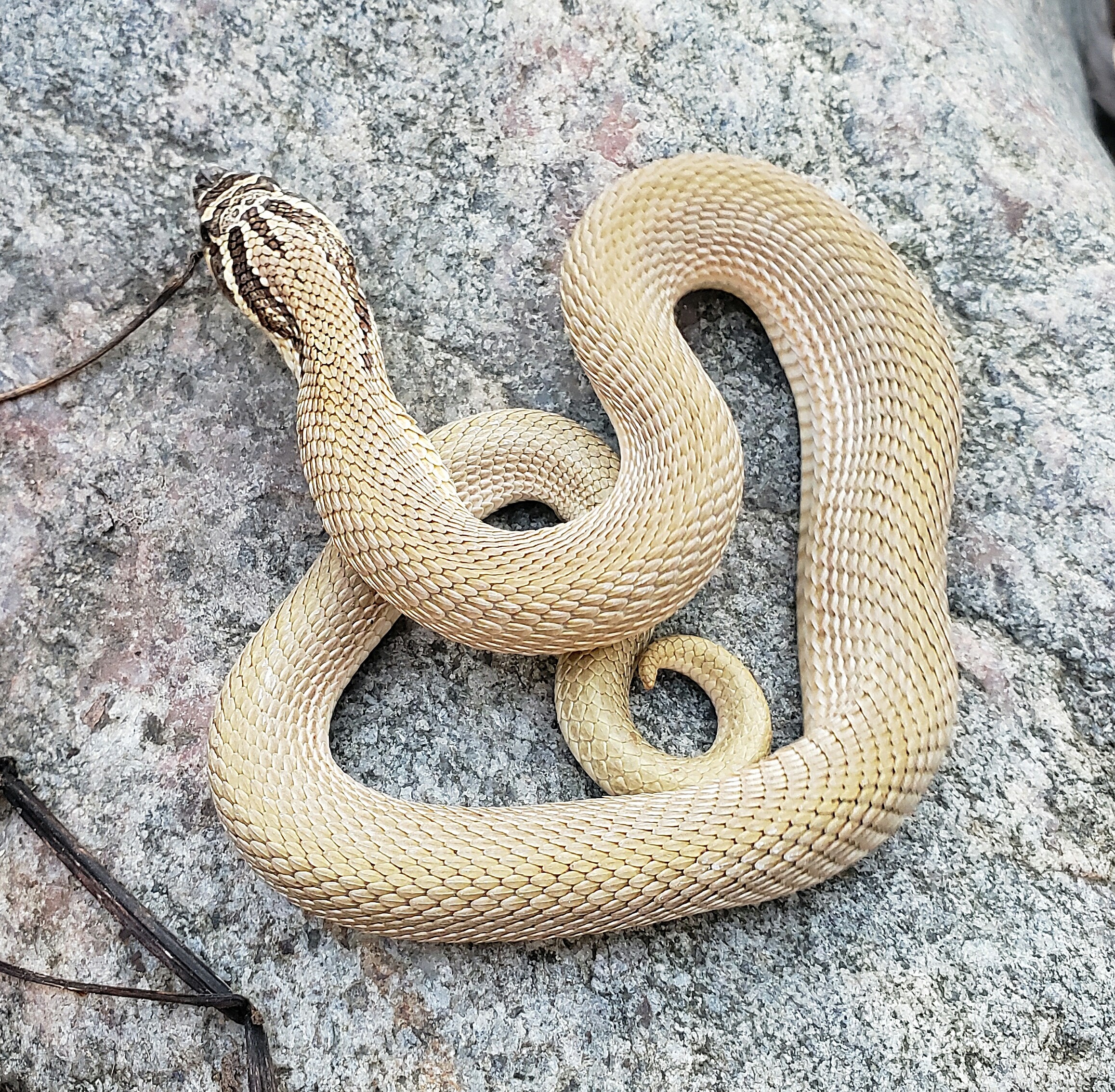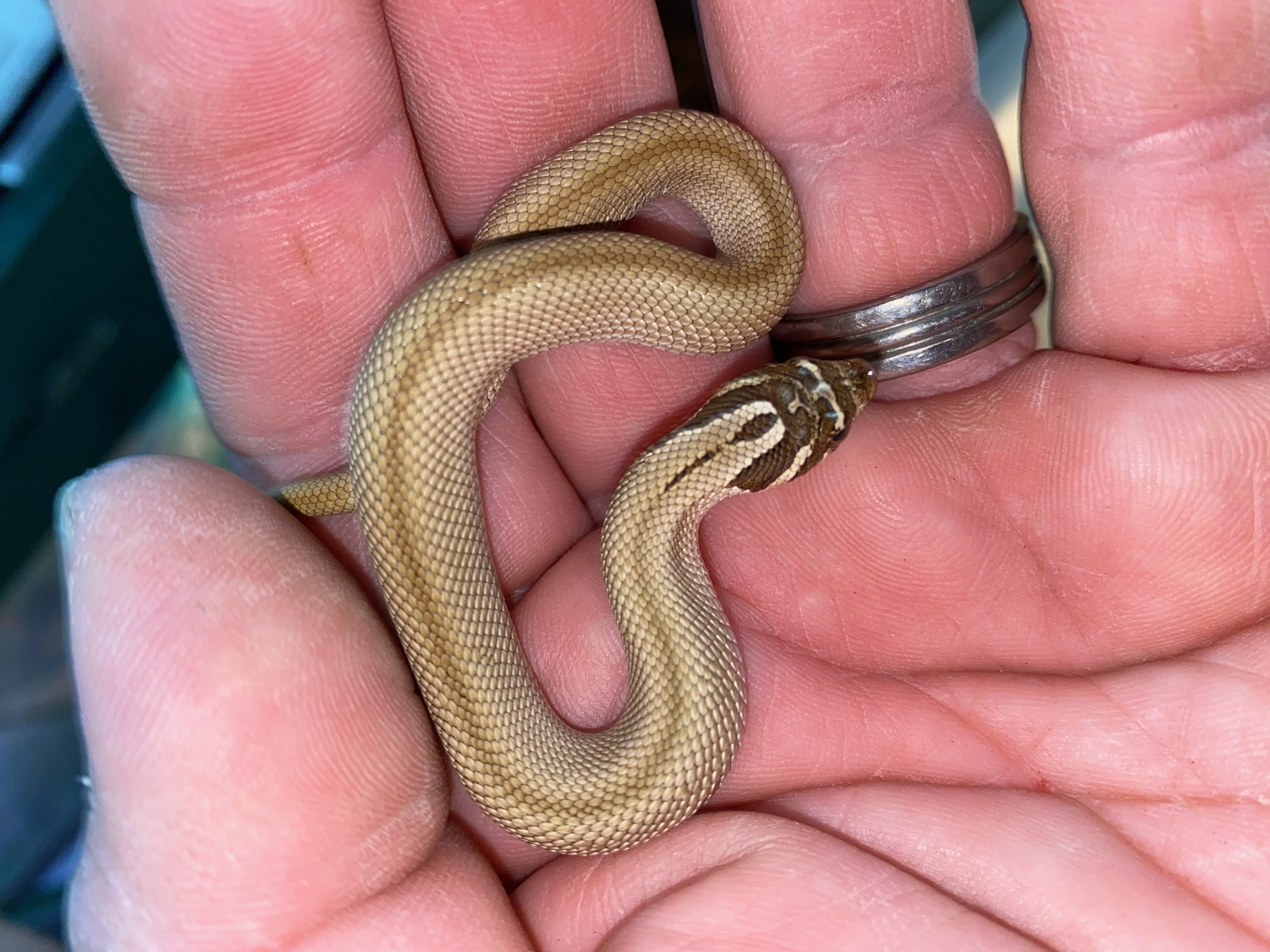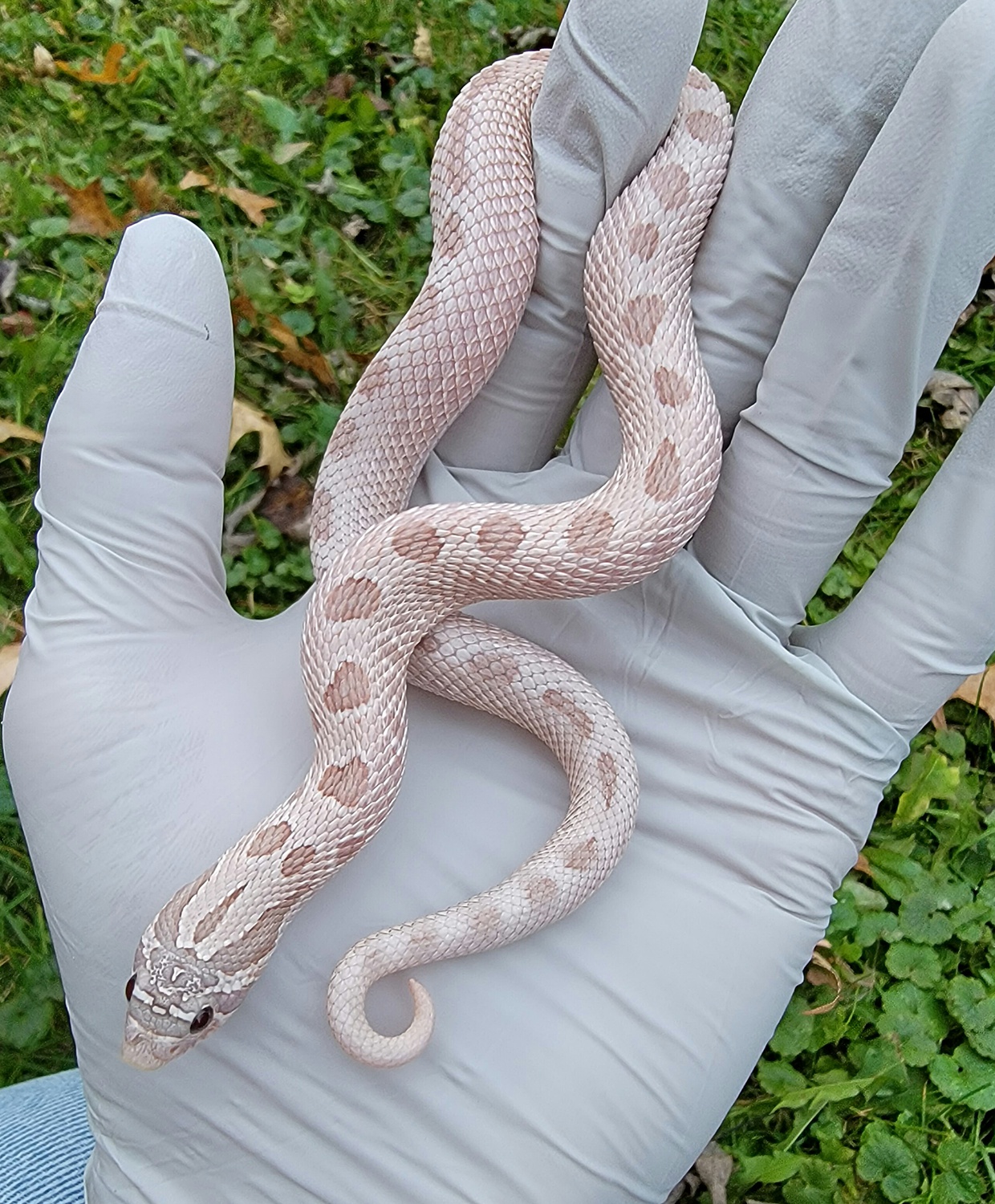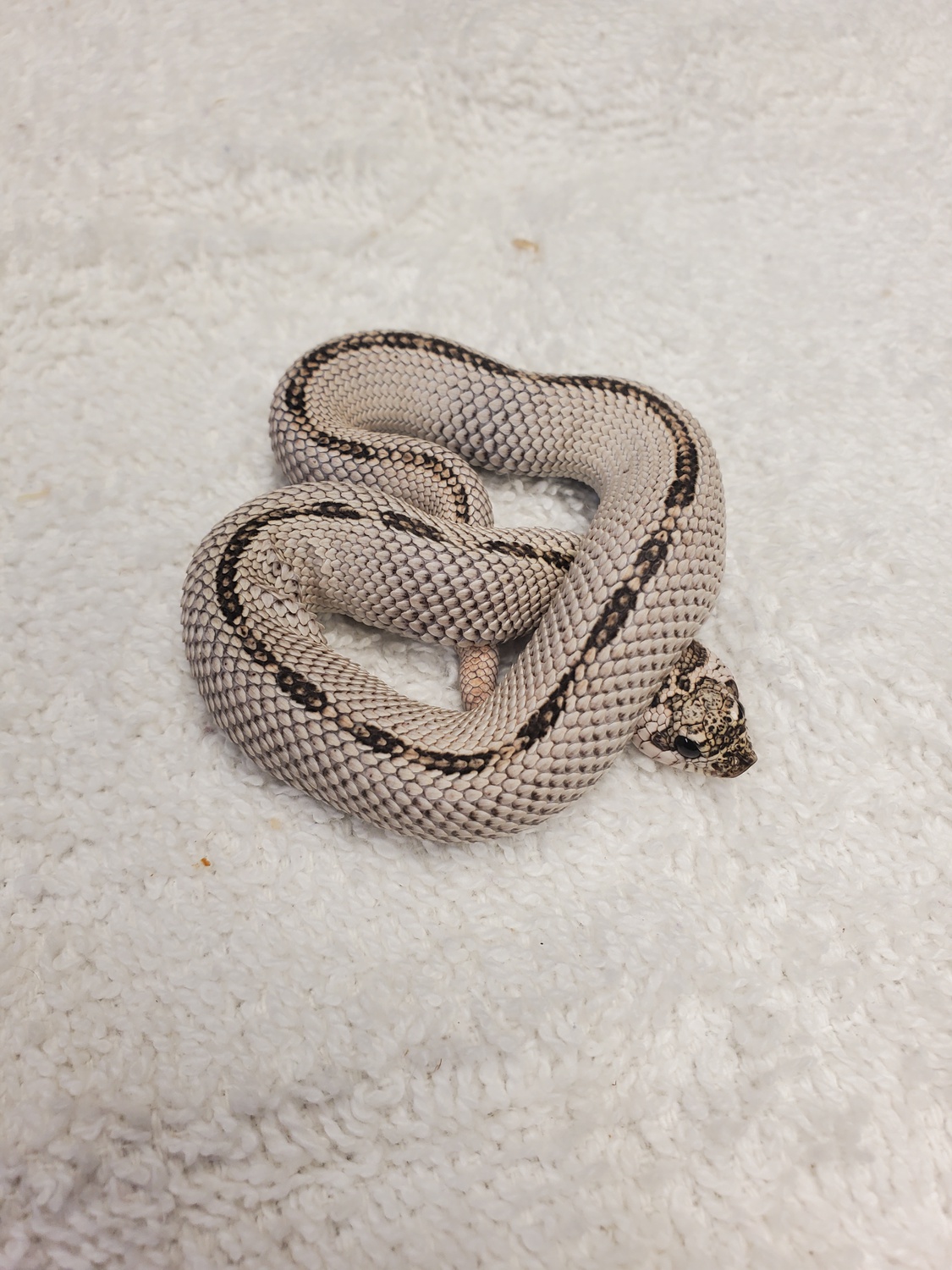Conda
Type: Incomplete Dominant
First Produced By: Brent Bumgardner
Aliases: Conda, Het Superconda
Issues: N/A
First Produced In: 2004
Availability: Rarest
Last Updated: 2024-01-27
Do you have any suggestions or corrections for this article?
Click here to contribute feedback
About
Conda is an incomplete dominant mutation.
History
The Superconda (Western Hognose) was produced from breeding two Anacondas together. The Anaconda was the first proven Inc Dominant trait in Western Hognose. The first Anaconda was produced in the 2004 breeding season by breeding a het pink pastel male (Richard Evans Stock) to a normal female. The name Anaconda came from the reduced pattern with only spots in the center of the dorsal scales and the belly pattern in solid black. In 2005 I produced my first clutch of Anacondas by breeding the first F1 Anaconda to an unrelated female, some of the offspring having the same pattern or very similar. In 2006 I produced another clutch from breeding a F2 male to an unrelated normal female with the same results. I was able to finally produce a female Anaconda in early 2007, and after a long wait I produced two Supercondas in 2008. The Anaconda Hognose has endless breeding possibilities with all the vibrant colors and patterns.
Appearance
Head
The head of a Conda is similar to a Normal but with a reduced face patterning.
Body
Condas can come in a whole bunch of variations colour-wise. The patterning on a Conda Western Hognose is reduced significantly with spots in the center of the dorsal. The Superconda is completely patternless.
Anaconda is characterized by large, blotched, and a reduced number of saddles. Extreme forms of anaconda can have striping. Two counts of anaconda creates the Superconda. The superconda is an almost patternless snake with a dark dorsal stripe. Some breeders are working on enhancing the stripe as well.
Belly
The belly of the Conda Western Hognose is usually a solid black colouration with white sides, although this is not always displayed.
Tail
The tail of the Conda Western Hognose follows the same patterning as the rest of the body.
Proven Lines
No known proven lines
Related Traits
No known related traits
Combos
- Candy (Super Anaconda Toffee Belly)
- Grey Fog (Anaconda Arctic)
- Pink Haze (Super Anaconda Pink Pastel)
- Pink Panther (Anaconda Pink Pastel)
- Platinum (Super Anaconda Arctic)
- Thallium (Anaconda Axanthic Toffee Belly)
- Toffeeconda (Anaconda Toffee Belly)
